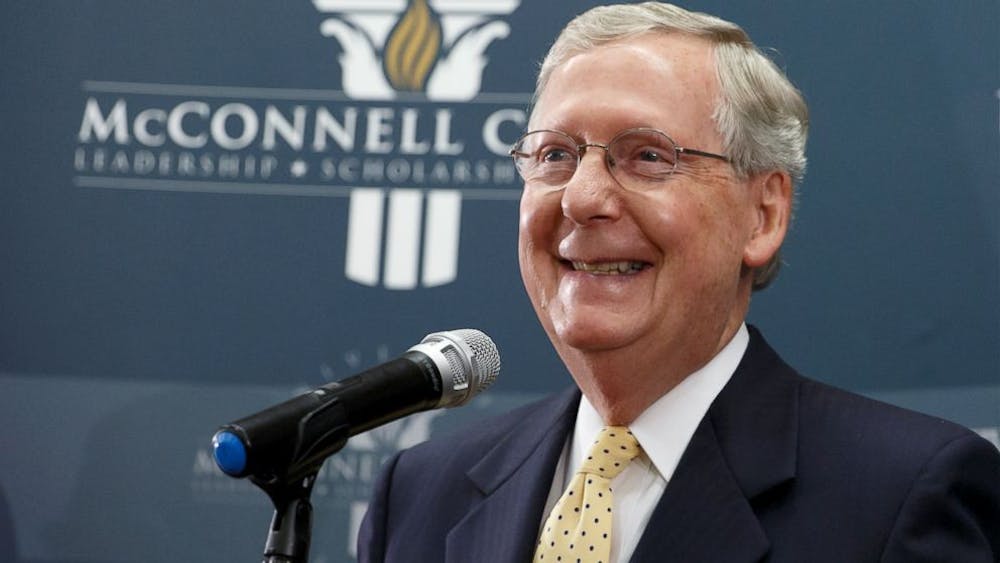By Joe Friedrichsen | Echo
In a punishing blow to President Barack Obama, American voters ordered Republicans to seize Senate control from Democrats on Tuesday. The move will limit Obama's legislative agenda and may force him to make a course correction during his final two years in office.
Despite the GOP's success-which gave it control of the Senate, an increased majority in the House and granted the Republican Party the keys to several more governor's mansions-a tough road lies ahead for it.
National exit polls of Election Day voters illustrated an unhappy electorate. According to ABC News, 59 percent are dissatisfied or angry with the Obama administration. Despite the Republicans' electoral success, 60 percent of voters are dissatisfied or angry with GOP leaders and 54 percent have an unfavorable opinion of the party itself.
The GOP's grim numbers serve as a reminder that its victory isn't necessarily an endorsement of its policies. In fact, some initiatives typically supported by Democrats, such as hiking the minimum wage and legalizing the possession of small amounts of marijuana, succeeded in a handful of states where the measures were on the ballot, reported Reuters.
That being said, what can Americans expect from a Republican-controlled Congress? How will it affect Obama in his next two years in office?
First, Republican Mitch McConnell will become the new Senate majority leader after narrowly escaping defeat in his Kentucky Senate race. He will be tasked with setting the chamber's agenda, deciding which bills come to the floor and managing floor debate to advance the GOP's agenda.
Republicans will also chair Senate committees next year that will give them substantial authority to launch investigations and shape policy debate in Washington. According to the Washington Post, Republican leaders are likely to ramp up oversight of the Obama administration. Increasing numbers of investigations and subpoenas (which order a person to attend court) may follow.
In addition, committee control will place Republicans in a stronger position to advance legislation and roll back some of the Obama administration's policies, including those dealing with health care and the environment.
With its newfound power in the Senate and increased majority in the House, the GOP can attempt to pass a wishlist of legislation. Realistically, because Obama retains the power to veto bills he disagrees with, few partisan bills are likely to be signed into law. The GOP also doesn't have a large enough majority in the Senate to override a presidential veto should Obama reject passed bills.
Nevertheless, Republicans will have greater ability to thwart Obama's agenda by refusing to confirm appointments to judgeships, ambassadorships, cabinet positions and lower-level administration jobs.
Extensive use of such tactics would hinder the Obama administration's ability to operate effectively, reported the BBC. The strategy could also limit Obama's ability to shape the federal judiciary.
At a press conference Wednesday in Kentucky, McConnell declared there will be no government shutdowns and no defaults on the national debt in confronting Obama, Politico reported. McConnell also said trade and tax reform were two issues he and Obama could pursue together.
At a White House press conference Wednesday, Obama warned of plans to go ahead with unilateral executive action concerning immigration. Such action could remove the threat of deportation for millions of undocumented immigrants by the end of this year. Although the president took a tone of compromise and accountability, Politico reported that Obama is not likely to back down from using his administrative powers over the next two years.
Obama's room to maneuver will also be limited by his own party. There's a lot of bridled demand for Democrats to start legislating in Congress. But the Democratic leadership doesn't have much incentive to concede to Republicans on legislation because their party is in a good position to win back a Senate majority in 2016, according to CNN.
Republicans will need to defend 24 seats-many from politically divided states-while Democrats only need to keep 10 seats from states that are largely blue. Senate aides from both parties, along with outside congressional observers, believe political positioning for the upcoming 2016 presidential and congressional elections will likely dominate day-to-day workings of the Senate.
But at this stage, Obama doesn't seem too worried. Concerning Tuesday's sweeping Republican victory, Obama said he doesn't want to try to read the tea leaves on election results.





